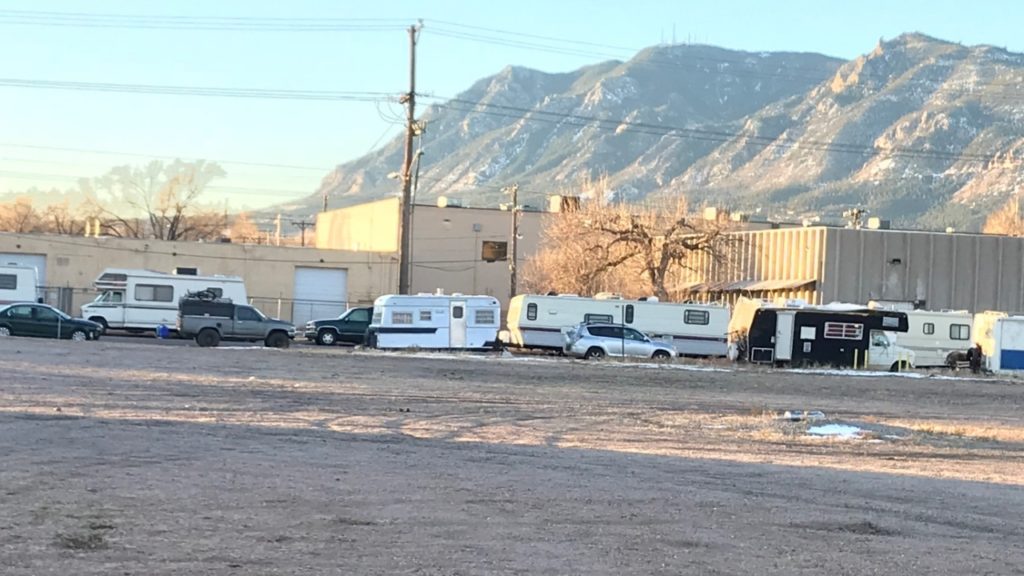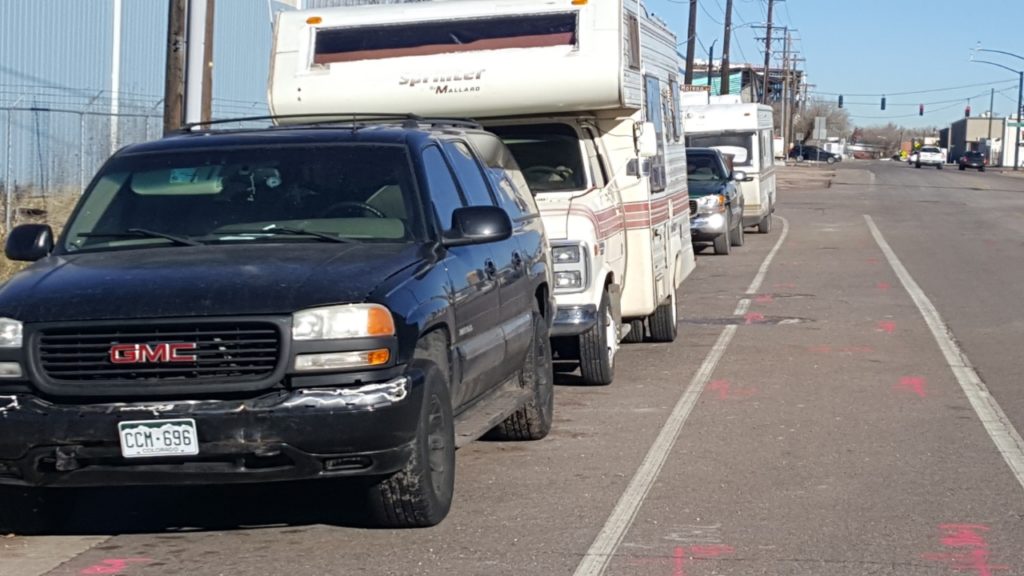COLORADO SPRINGS – City council could soon vote on a change to the ordinance covering the ability to impound recreational vehicles in order to prevent the vehicles from being left on streets for an extended period of time.
In a work session on Monday afternoon, council members heard from Colorado Springs Police Department Commander Sean Mandel who oversees the Gold Hill Divison covering the southwest portion of the city.
He’s making the pitch on behalf of CSPD. According to the department, officers have received several recent complaints about recreational vehicles parked not only on residential streets, but along larger streets, in commercial areas and even in designated park & ride locations. These can include camping trailers, fifth wheel trailers, motor homes, travel trailers and truck campers.

The current city ordinance specifically contains fines for the extended parking of recreational vehicles “on a public right of way in a residential area for a period of time greater than that necessary for the expeditious loading and unloading of passengers or property.”
The proposed change would add “on a street or highway, alley, public roadway, or other public right of way” while eliminating “in a residential area” to allow the city to take action against offenders parked practically anywhere, except private property, for an extended period of time.
10.25.101: AUTHORITY TO IMPOUND VEHICLES:
Any recreational vehicle parked on a street or highway, alley, public roadway, or other public right of way for a period of time greater than that necessary for the expeditious loading and unloading of passengers or property.
Citations for illegal parking violations are: $75 for the first offense, $100 for the second, $125 for the third and the fourth offense can be assessed by a court, but cannot exceed $500. Any vehicles left in place 72 hours after a citation is issued can be impounded. Jail is not an option for violators of the ordinance.

In his presentation to council, Commander Mandel showed photos of recreational vehicles lining city streets, yet not in violation of the current ordinance. A single photo in the presentation shows at least 8 vehicles lining one street on both sides.
The argument is to improve congestion, parking management and traffic movement. However, it cannot be ignored that some are using recreational vehicles for long term living arrangements, and owners are not utilizing city services, therefore leaving their trash and other items into the surrounding areas, or even dumping wastewater onto city streets.
Mandel told council he is not looking to start impounding RVs immediately, rather he wants to empower his officers to start informing owners that they are violating the law and need to move, in an effort to change behavior.
He did agree with an assessment that the owners of these RVs regularly move in order to avoid getting the attention of police because “they know the system.”
David Geislinger (District 2) said, “Many years ago, we along with the rest of world thought we would address homelessness by criminalizing it and making enforcement the means of which we would would move people along and we’ve learned that’s not the case. It seems that we are starting down that same path.” He would prefer a larger plan to help the homelessness and homeless families, rather than perpetuate the problem with more penalties.
Jill Gaebler (District 5) asked “Where are these people going to go?” She’s concerned this will be like a game of “whack-a-mole” where officers are addressing the same people over and over again. Gaebler also addressed her constituents’ concerns about people living in cars, SUVs, vans and trucks which would not be covered under the ordinance change.
The area on Mark Dabling Blvd, between Rockrimmon and Austin Bluffs has also been used by those seeking a place to set up a recreational vehicle for an extended period of time. At least 2 fifth-wheel campers were parked parallel to the railroad tracks in recent weeks. As of late last week, there was only one vehicle remaining, but a large pile of trash was left behind where another used to sit.

This is only the first presentation to council about the proposed change. It will come before the council again for a possible vote on December 11th.
There is an ordinance in place, as of July, that prohibits camping within 100 feet of a waterway within city limits. It was approved based on the argument that human camping close to waterways is a direct contributor to increased bacteria in the water, therefore posing a public safety and health risk to the community.
Civil rights groups have voiced their opposition to that ordinance, claiming it unfairly targets the homeless.

